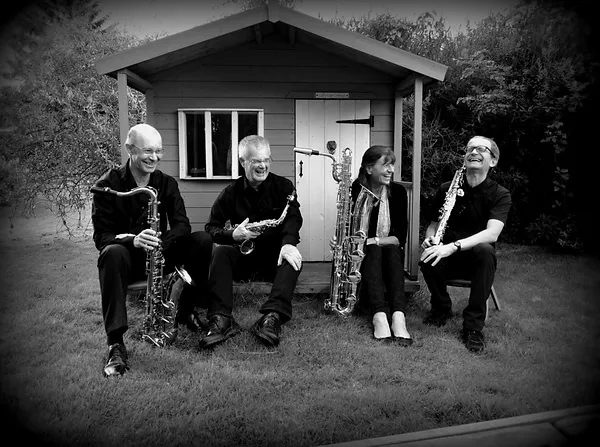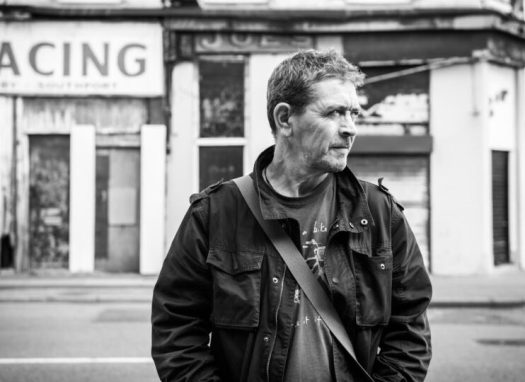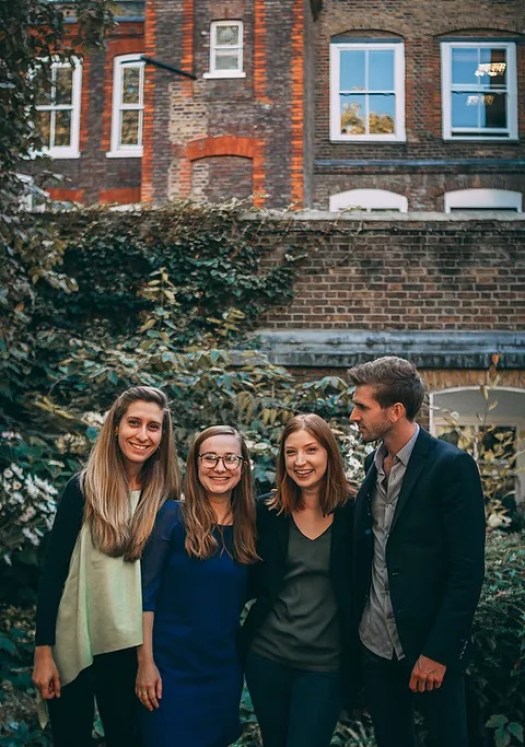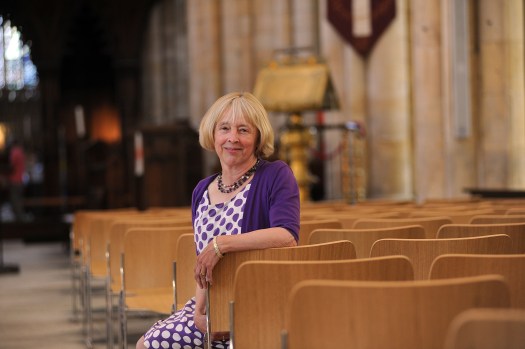
FROM Queen’s “rock theatrical” to Britney fandom, a café’s mug exhibition to folk’s witching hour, outlaw cabaret with gin to confronting digital intrusiveness, Charles Hutchinson finds diversity aplenty to enjoy.
Musical of the week: We Will Rock You, Grand Opera House, York, Monday to Saturday, 7.30pm; 2.30pm, Wednesday and Saturday
WRITER and comedian Ben Elton directs the 20th anniversary of We Will Rock You, the “guaranteed-to-blow-your-mind” Queen musical built around his dystopian futuristic storyline.
In a system that bans rock music, a handful of rebels, the Bohemians, vows to fight against an all-powerful global company and its boss, the Killer Queen.
Musical advisor Brian May says “the world’s first true Rock Theatrical” now has a state-of-the-art new look, with a story of breaking free from conformity more relevant than ever. Box office: 0844 871 7615 or at atgtickets.com/York.

Cracking (or hopefully not) exhibition of the week: Cups and Such…or, A Hug In A Mug, FortyFive Vinyl Café, Micklegate, York, until March 6
“A HUG for you, or for someone else, Cups and Such is an exhibition of beautiful, handmade drinking vessels that promises to offer comfort and solace for all,” says curator Lotte Inch.
Working in tandem with FortyFive Vinyl Café, that welcoming haven of music, coffee and comfort food, Lotte Inch Gallery has selected cups, mugs, beakers, tea bowls and more, made by hand by Rebecca Callis, Reiko Kaneko, Ali Tomlin and the Leach Studios to “offer someone a moment of warmth, a sense of connection and an opportunity to embrace”.

Topical comedy gig of the outside York: Mark Watson, This Can’t Be It, Pocklington Arts Centre, tonight, 8pm
AMID so much pandemic pondering about the fragility of life recently, don’t worry, comedian Mark Watson has it covered. At 41 – he turns 42 tomorrow – he is halfway through his days on Earth, according to the life expectancy calculator app that cost him all of £1.49.
That life is in the best shape in living memory but one problem remains. A huge one. Spiritual enquiry meets high-octane observational comedy as the No More Jockeys cult leader strives to cram two years of pathological overthinking into an evening of stand-up. “Maybe we’ll even solve the huge problem,” says Watson. “Doubt it, though.” Box office for returns only: 01759 301547 or at pocklingtonartscentre.co.uk.

Noughties’ nostalgia of the week: Saving Britney, John Cooper Studio, Theatre@41 Monkgate, York, tomorrow (13/2/2022) at 8pm
MILLENNIALS such as Jean grew up with Britney Spears. Saving Britney recounts how the Princess of Pop influenced Jean’s life and how the connections shared between them led to an unbelievable moment of self-discovery.
Inspired by the #FreeBritney movement, Shereen Roushbaiani takes a humorous yet heart-breaking look at celebrity obsession, sexuality and growing up in the early Noughties. Box office: tickets.41monkgate.co.uk.

Folk concert of the week: Heal & Harrow, National Centre for Early Music, York, Monday, 7.30pm
HEAL & Harrow are folk musicians Rachel Newton, from The Shee, The Furrow Collective and Spell Songs, and Lauren MacColl, of Rant and Salt House.
Working as duo for the first time, they combine newly composed music and accompanying visuals in a tribute to those persecuted in the 16th and 17th century Scottish Witch Trials, 80 per cent of them women.
The project also explores historical beliefs in the supernatural and modern-day parallels, each piece being based on commissioned works by author Mairi Kidd. Box office: 01904 658338 or at ncem.co.uk.

Premiere of the week: Theatre Space North-East in Girl In The Machine, John Cooper Studio, Theatre@41 Monkgate, York, February 17, 7.30pm
STEF Smith’s ground-breaking play Girl In The Machine explores our unease over digital intrusiveness, then pushes it a step into the future in Jamie Brown’s touring production.
In brief: Owen (Lawrence Neale) and Polly (Corinne Kilvington) are in successful careers and wildly in love, feeling ready to take on the world, but when a mysterious new technology, promising a break from the daily grind, creeps into everyone’s phones, their world is turned upside down.
As the line between physical and digital dissipates, Owen and Polly are forced to question whether their definitions of reality and freedom are the same. Box office: tickets.41monkgate.co.uk.

Meet the new Gang: Miles And The Chain Gang, The Black Swan Inn, Peasholme Green, York, February 19, 8pm to 11.30pm
YORK writer, musician and storyteller Miles Salter is back with a new Chain Gang for a headline show at the Black Swan.
“This is the first gig with the new line-up and it’s sounding great,” says Salter, introducing Daniel Bowater on keyboards, Steve Purton on drums, Mat Watt on bass and Mark Hawkins on lead guitar.
Miles And The Chain Gang will be supported by Sarah Louise Boyle, Lee Moore and Monkey Paw. “It’ll be a diverse and fun evening, so do come along,” says Salter. Tickets: at prime4.bandcamp.com/merch/miles or on the door.

Sax to the max: Sax Forte, York Unitarians Friday Lunchtime Concerts, St Saviourgate Unitarian Chapel, March 11, 12.30pm
CELEBRATING their 350th anniversary in 2022, York Unitarians open their 11th season of Friday lunchtime concerts with the return of York saxophone quartet Sax Forte.
Playing together since 2016, Chris Hayes, Keith Schooling, Jane Parkin and David Badcock all have extensive experience with other quartets, bands and orchestras. They are equally at home playing programmes of serious and light classical music or jazz and swing standards. Tickets cost £6 (cash) on the door.

Not just the tonic: Velma Celli and York Gin’s Outlaw Live cabaret night, National Centre for Early Music, York, March 25, 8pm to 10.30pm
YORK drag diva Velma Celli invites you to “celebrate your inner outlaw” at York Gin’s cabaret soiree at the NCEM.
For one night only, glamorous Velma and friends will be celebrating all that’s naughty, villainous and defiantly outrageous about York and its outlaws, from Guy Fawkes to Dick Turpin, with a combination of song, laughter and York Gin.
Tickets are on sale at tickettailor.com/events/yorkgin/590817/ and admission includes a gin cocktail on arrival.























